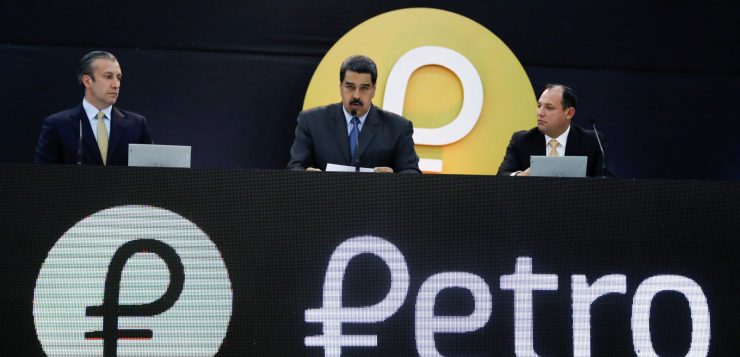Venezuela, the world’s second-largest crude oil producer, is learnt to have offered a 30% discount on India’s petroleum imports from there—but only if payments are made using the cryptocurrency backed by that country’s government.
Officials of the Venezuelan government’s energy and blockchain departments presented this option before India during their visit to the country in March-April, said an official from the Venezuelan embassy in India, requesting anonymity. However, no official proposal was made in this regard.
“We have been travelling and have been informing countries about our offer. We have seen huge interest from India’s private sector but because India is yet to lay down regulations regarding cryptocurrencies and still seems to be sorting out the issue domestically, no official offer has been made,” added the official.
India imported around 8% of its oil needs from the Latin American country in financial year 2017, which amounts to around $5.5 billion. A 30% discount on this could translate to annual savings of $1.6 billion for India.
The Venezuelan government has already entered into an agreement with Coinsecure, a Delhi-based digital currency exchange, to sell petro, its cryptocurrency, in India, according to the Business Standard newspaper. Coinsecure is reportedly building a platform to be used by all cryptocurrency players who want to trade in Venezuela. While it will be deemed a Venezuelan government entity, Coinsecure will handle the back-end.
India, meanwhile, has made it amply clear over the past few months that it isn’t comfortable with virtual currencies. Its central bank has prohibited lenders from entering into any business relationship with cryptocurrency exchanges. Yet, cryptocurrencies aren’t banned in the country. In fact, the Reserve Bank of India itself is considering launching a digital currency backed by it.
What is petro?
Petro is the world’s first government-backed digital currency. Launched in February to tackle the situation arising out of the US government’s sanctions on the country, the Venezuelan government owns and controls this cyrpocurrency.
Venezuelan president Nicolas Maduro has been juggling various options to pull his country out of the morass of weak economy, hyper inflation, and depreciating local currency. With the US barring it from accessing its banking ecosystem, Venezuela is starved for the dollars it desperately needs for international trade.
“The restrictions placed by the US government are very painful as it has severely restricted trade and we are hitting back by using this new technology,” added the Venezuelan official.
The price of one petro is equivalent to a barrel of oil. But it can be bought only by using dollars and not the Venezuelan Bolívar.
Should India take it up?
“The current roadshow by the Venezuelan government to offer discounts on the petro to energy-importing states such as India represents a clearly desperate, last-ditch effort to prop up a failing regime through a pyramid scheme, and no one is taking the bait,” Robert Amsterdam, an international lawyer who has been advising mining and energy corporations, told Quartz.
“Petro is a way for the Venezuelan government to skirt US sanctions and offer a temporary mechanism for a handful of people to move dollars out of the country without having to risk it on the Bolivar, which hit 454% inflation in the first quarter. However in order for this limited series of transactions to work, they need to continue bringing in new punters for the money to exit,” added Amsterdam, explaining the rational behind the offer.
Others, however, believe the offer is too sweet to be missed.
The Indian government should definitely consider the offer especially if they can use it as a leverage with other oil-supplying countries, too, said Akash Aggarwal, CEO of Alluma, an institutional grade cryptocurrency exchange.
Read more at: Quartz







